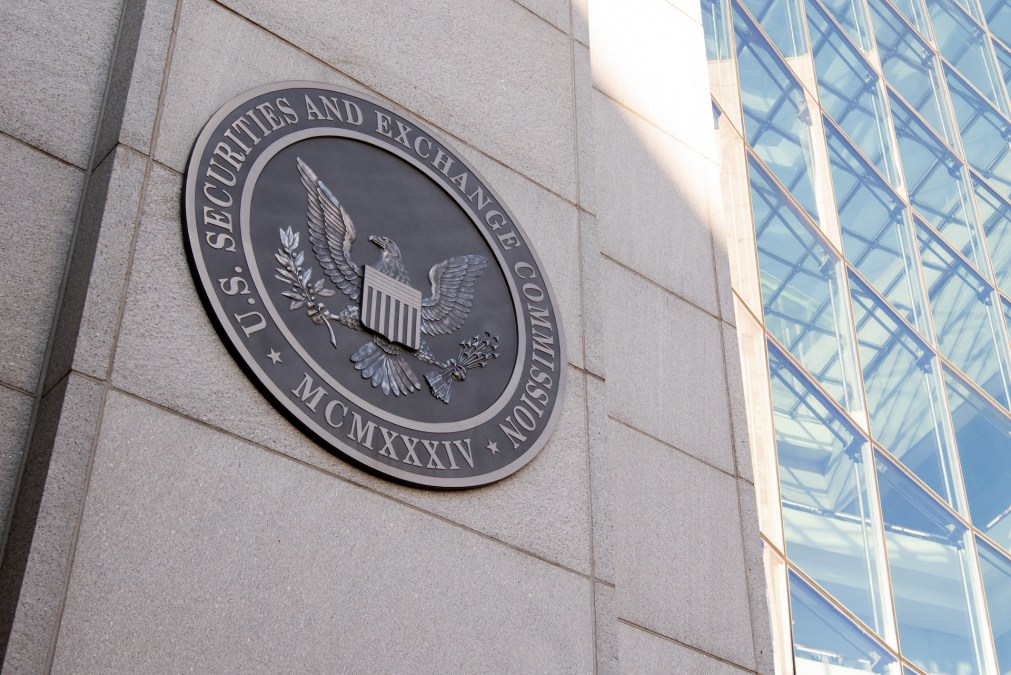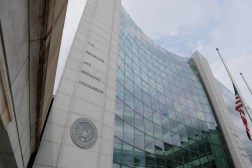SEC rebrands cryptocurrency unit to focus on emerging technologies

The Securities and Exchange Commission announced Thursday that it was changing its Crypto Assets and Cyber Unit to the “Cyber and Emerging Technologies Unit.” The regulator said its new unit will “focus on combatting cyber-related misconduct and to protect retail investors from bad actors in the emerging technologies space.”
The newly rebranded unit will be composed of approximately 30 fraud specialists and attorneys across the SEC, led by Laura D’Allaird, who was made co-chief of the Crypto Assets and Cyber Unit in December. Prior to that, D’Allaird served in a variety of roles over the past three years at the SEC, including senior counsel at the Division of Enforcement and counsel to Commissioner Jaime Lizárraga.
Among the unit’s focus will be fraud committed using emerging technologies; the use of social media, the dark web, or false websites to perpetrate fraud; hacking to obtain material nonpublic information, takeovers of retail brokerage accounts, fraud involving blockchain technology and crypto assets; compliance with cybersecurity rules and regulations; and public issuer fraudulent disclosure relating to cybersecurity.
“Under Laura’s leadership, this new unit will complement the work of the Crypto Task Force led by Commissioner Hester Peirce. Importantly, the new unit will also allow the SEC to deploy enforcement resources judiciously,” Acting Chairman Mark Uyeda said in a statement. “The unit will not only protect investors but will also facilitate capital formation and market efficiency by clearing the way for innovation to grow. It will root out those seeking to misuse innovation to harm investors and diminish confidence in new technologies.”
Uyeda’s vision for the revamped unit represents a shift from the Biden administration, which launched the Crypto Assets and Cyber Unit in 2022 and described its work as seeking to “leverage the agency’s expertise to ensure investors are protected in the crypto markets.” The 50-person unit was also responsible for investigating securities law violations related to crypto asset exchanges, offerings, lending and staking products, decentralized finance platforms, non-fungible tokens and Stablecoins.
The unit was part of a larger Biden administration effort to regulate emerging cryptocurrency markets, which they believed had become rampant with fraud and presented a destabilizing threat to financial markets.
Between 2021 and 2024, the agency brought legal and enforcement action against 89 entities related to cryptocurrency fraud and unregistered asset offerings and platforms, according to a list on the SEC’s website. That includes actions against Sam Bankman-Fried, the CEO of cryptocurrency derivatives exchange company FTX, who was convicted of defrauding thousands of investors out of billions of dollars. Additionally, the unit brought a lawsuit against Binance, one of the world’s largest crypto asset trading firms, for securities law violations.
President Donald Trump, however, largely embraced the cryptocurrency industry during his campaign and has installed or nominated industry allies in key positions across government since coming into office.
Those connections, along with the rebranding, have caused some former agency officials to worry that the SEC may be abandoning its focus on regulating and enforcing cryptocurrency-related crime.
John Stark Reed, former chief of the SEC’s Office of Internet Enforcement, commented on the changes by saying “stick a fork in SEC crypto enforcement, it’s done.”
In a LinkedIn post Thursday, Reed wrote that the focus areas of the SEC’s rebranded unit were a case of “Back to the Future” for the agency.
“It was about 27 years ago that the SEC created the ‘Office of Internet Enforcement,’ to do pretty much the same thing as this newly created SEC Enforcement ‘C2,” Reed wrote.
But there are other reasons to doubt whether the SEC will continue robust enforcement of crypto assets. Paul Atkins, Trump’s nominee for SEC chair, as well as Andrew Vollmer, former deputy general counsel and current advisor to acting SEC Chair Mark Uyeda, were among the primary authors of a chapter in Project 2025 focused on the SEC.
The chapter refers to both the SEC and the Commodity Futures Trading Commission as “irresponsible actors in the digital asset area” and accuses the agencies of dragging their feet on promulgating formal rules for governing digital assets like cryptocurrency.
The authors also take a dim view of their reliance on enforcement to bring cryptocurrency actors in line with federal law.
Both agencies “have chosen regulation by enforcement — and have done it poorly,” the chapter continues. “They neither adequately protect investors nor provide responsible market participants with the regulatory environment that they need to thrive.”
Other observers say that while it’s certainly possible the rebranding augurs a less forceful approach around cryptocurrency enforcement by the SEC, that’s not a given.
The description for the new unit still lists “fraud involving blockchain technology and crypto assets” among its areas of focus. Michael Daniel, former White House cyber coordinator under the Obama administration, told CyberScoop that the name change could be a way for the unit to distance itself from its Biden-era roots while still maintaining much of its original core focus.
“Putting on my Washington hat and having gone through transitions, the fact that you remove ‘crypto’ from the name, might help lower the probability of it being targeted by the White House’s ire,” Daniel said. “That doesn’t mean it won’t do crypto investigations necessarily.”
Daniel also said that expanding the unit’s mission to monitor emerging technologies like artificial intelligence and quantum computing makes sense, regardless of how the administration enforces cryptocurrency-related crimes.
“It’s not completely ridiculous to me to imagine that the SEC is saying that, “we have to look beyond just crypto and fintech, and really think about how a whole suite of emerging technologies is affecting the securities markets and protecting investors,’” he added.






